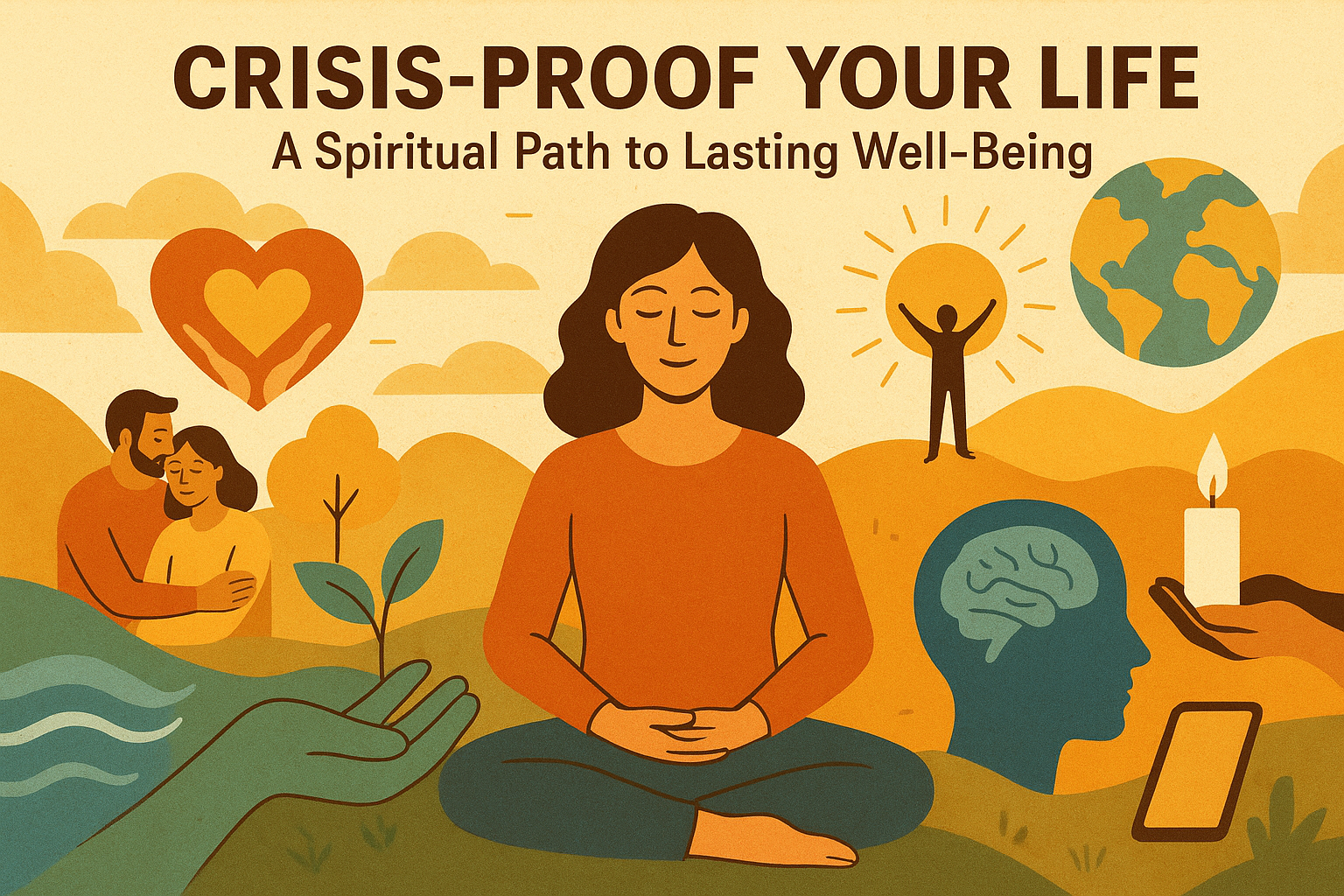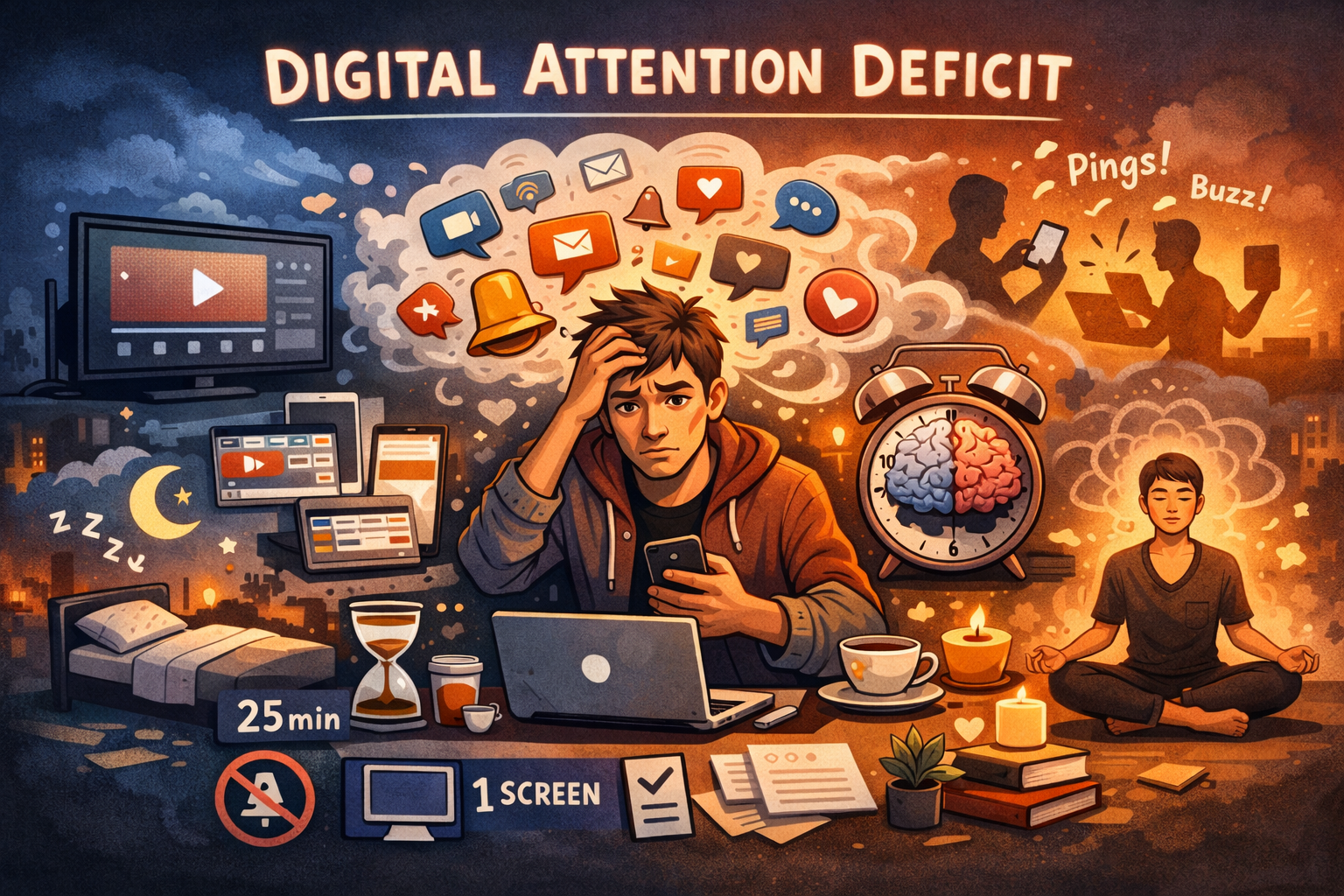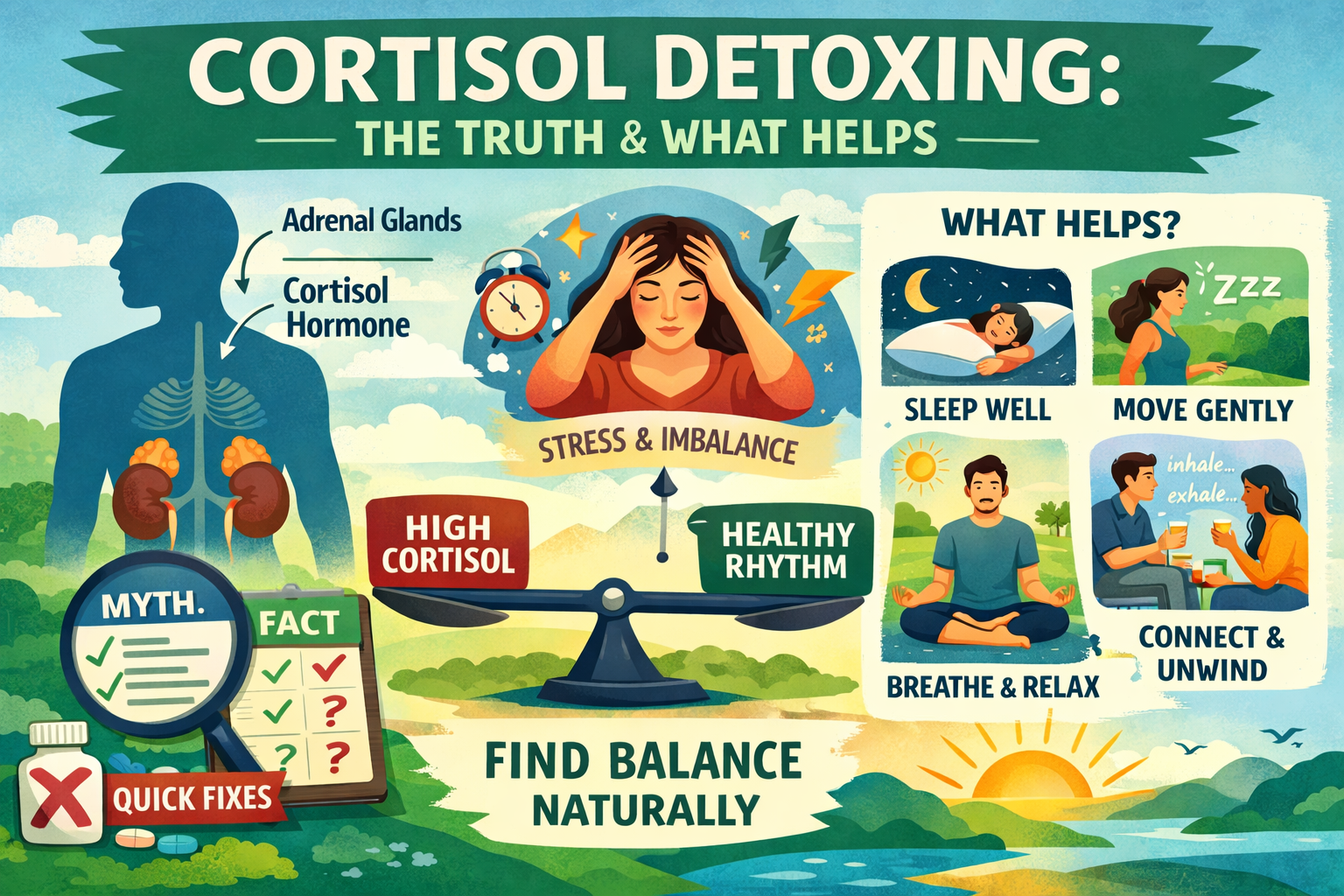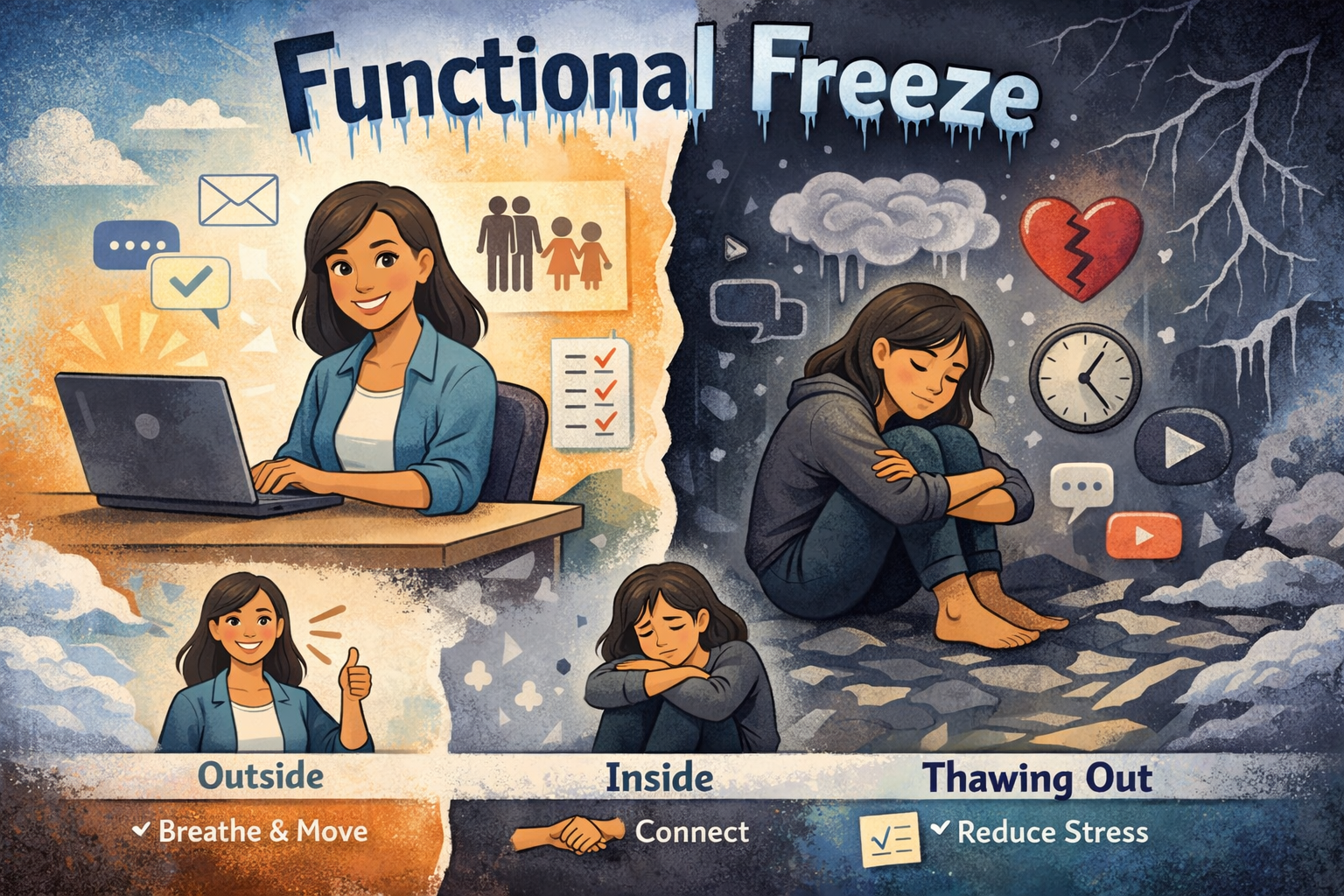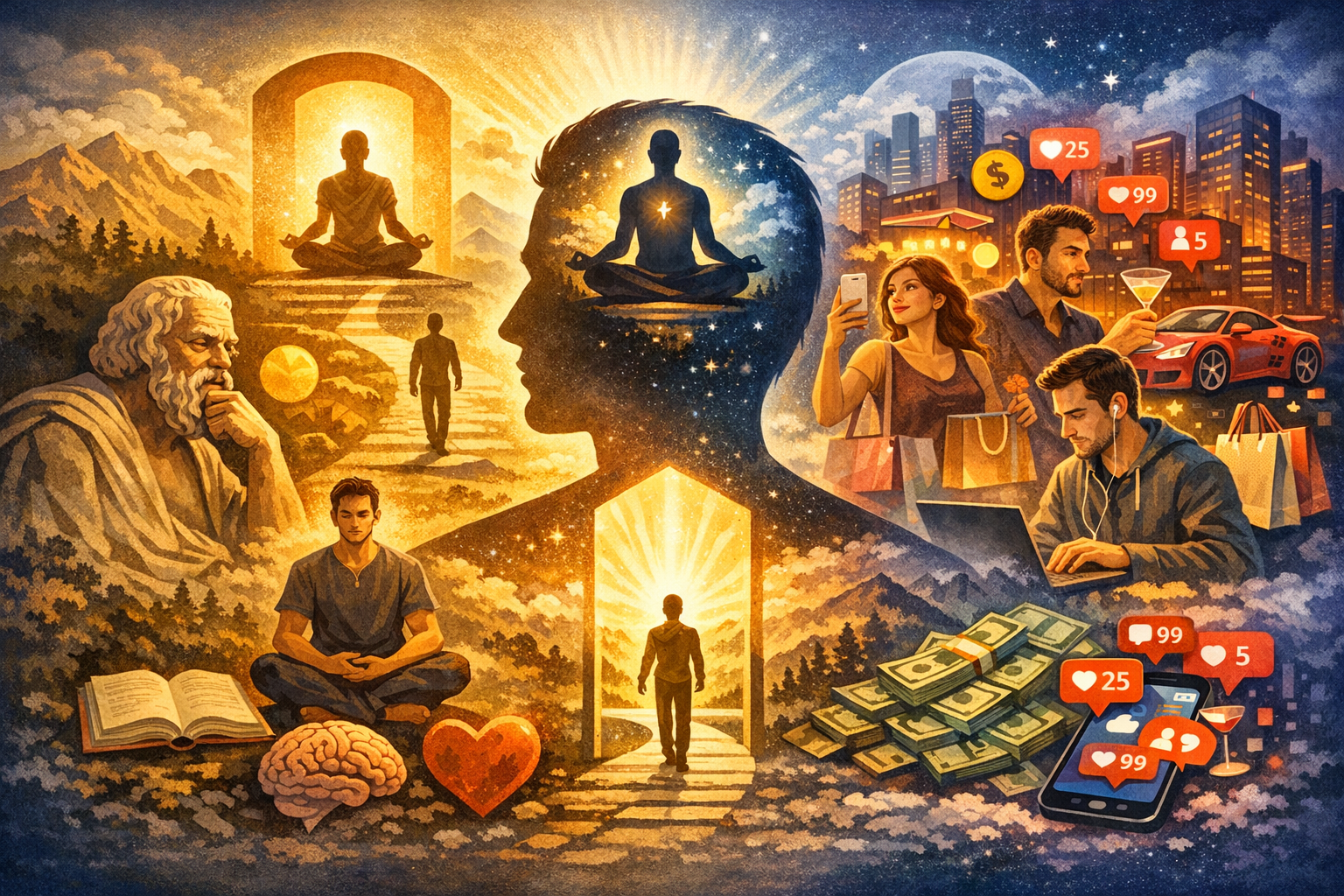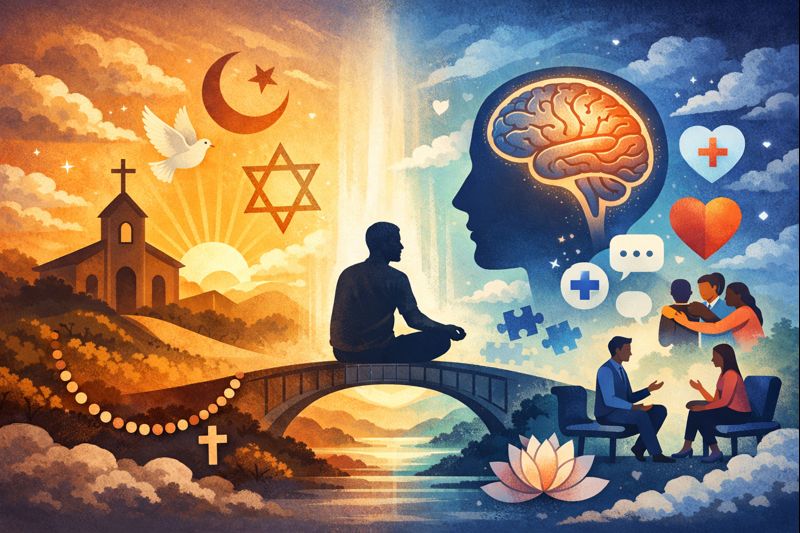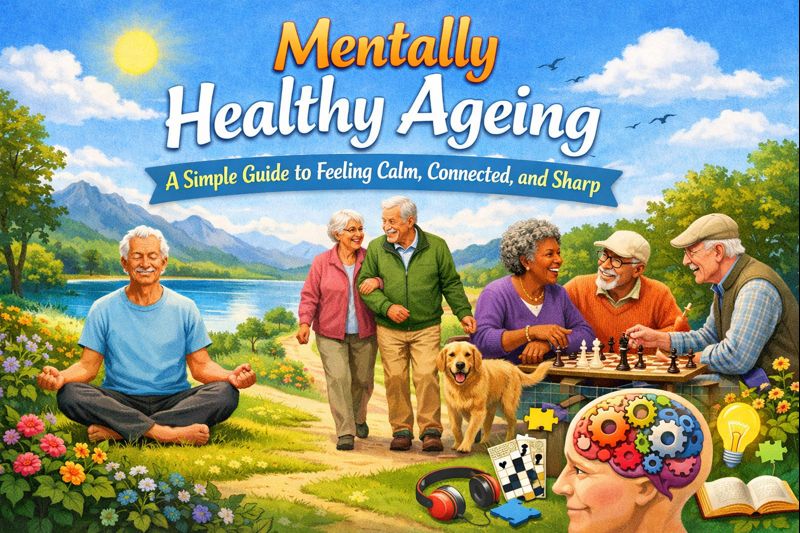Living in a Time of Uncertainty
Let us be honest — the world feels more unstable and insecure than it did a decade ago.
We are watching climate change trigger floods, fires, and record heatwaves. Geo-political conflicts are breaking out in different corners of the globe. Technology especially artificial intelligence (AI) is transforming our life in many ways. We wonder in which direction we are moving. AI experts are foreseeing artificial general intelligence (AGI) in near future. The mental health epidemic is now almost a reality. Mental health concerns are rising sharply and becoming as common as the common cold.
In such times, it's natural to ask: How do we stay steady when the ground beneath us keeps shifting?
The answer might not be found in more news updates or better gadgets, but in something far older and deeply human — spirituality. Not in the sense of rituals or belonging to a particular religion, but as a set of values, habits, and inner practices that make us resilient from the inside out.
Why Spirituality Matters Now
When we hear "spirituality," many of us think of meditation, prayer, or quiet introspection. But it's also about how we relate to ourselves, to others, and to the bigger purpose of life.
Research supports this. Dr. Harold Koenig of Duke University has found in multiple studies that people who engage in spiritual practices often report better mental health, stronger coping skills, and a greater sense of meaning. As he puts it: "Spirituality connects us to something larger than ourselves, which changes how we respond to stress."
Similarly, a Harvard study on mindfulness meditation found that regular practice can actually change brain structure, increasing the grey matter in areas linked to memory and emotional regulation. That's a direct physical change in our brain's ability to handle pressure.
The Limits of Organized Religion
Organized religion has, at times, brought people together, offered charity, and built communities. But it hasn't always been enough to address the root causes of human suffering. Too often, it gets caught in rules, hierarchies, and traditions that leave little room for personal transformation.
We've seen a world full of temples, churches, and mosques — and yet war, greed, and injustice persist. This doesn't mean faith is useless, but it reminds us that a truly spiritual life goes beyond belonging to an institution. It's about living our values daily, in how we treat people, how we handle challenges, and how we care for ourselves and our world.
Building a Crisis-Proof Inner Life
So, how do we actually make ourselves more resilient in the face of uncertainty?
Here are some steps we can all take — simple, everyday practices that do not require us to retreat to the mountains.
1. Train Your Attention
Give yourself 10 minutes a day for mindfulness, breathwork, or quiet reflection. Even a short daily practice can, over time, reduce reactivity and help us make wiser choices.
2. Strengthen Human Connection
Make time for people who lift you up. This is not just "being social" — it's building a safety net. The U.S. Surgeon General has called loneliness a public health epidemic, linking it to heart disease, depression, and shorter life expectancy.
3. Find Meaning in the Everyday
At the end of each day, ask: What mattered today? Why? This helps shift our focus from what went wrong to what gave our day purpose.
4. Care for the Body First
When anxiety rises, start with the body. Slow breathing, a walk outside, or light stretching can reset the nervous system before the mind catches up.
5. Protect Your Mental Space
Create digital boundaries — maybe no phone for the first 30 minutes after waking and the last 30 before sleep. These moments of quiet help us think more clearly.
6. Serve Without Expectation
Helping others is not just about kindness; it's a proven way to boost our own sense of purpose. As the Dalai Lama said: "If you want others to be happy, practice compassion. If you want to be happy, practice compassion."
Shifting Our Mindset
It is not enough to just add new habits; we also need to shift how we see the world.
- From control to capacity – We cannot control global events, but we can build inner capacity to meet them.
- From performance to presence – Instead of constantly "proving ourselves," we can focus on showing up fully in the moment.
- From isolation to connection – True resilience is often a shared effort.
A Closing Thought
Spirituality will not stop rising conflicts, prevent floods and droughts, or control the economy's uncertainty. But it can make us crisis-proof — calmer in turmoil, grounded in chaos, and able to offer help to those around us.
We may not be able to stop the waves, but as the saying goes, we can learn to surf. In the process, we rediscover something powerful: no matter what the world throws at us, there is a steady place inside that's always ours to return to.
Are you looking for inner peace, deep relaxation or holistic solutions for mental health? Visit http://themindtherapy.in - your space for online counselling/therapy, free mental health tests, meditation, sound therapy etc.
Mind Therapy is India's trusted platform for mental health, mindfulness, and holistic healing. Explore expert-led programs, guided meditation, sound therapy and counselling at http://themindtherapy.in


